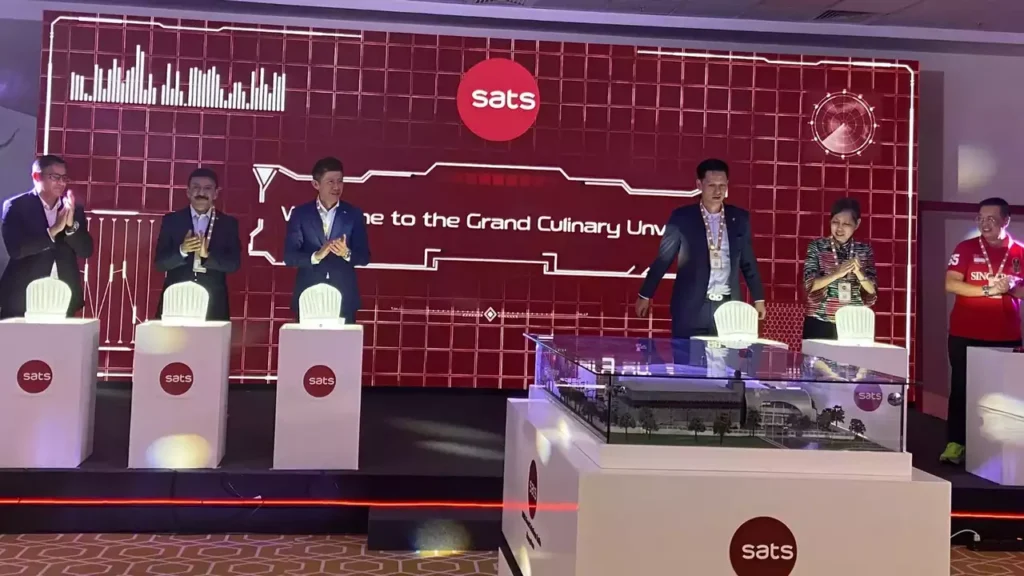The ready-to-eat (RTE) food industry in India has experienced significant growth in recent years due to changing lifestyles, urbanization, and increased disposable income. Convenience and time-saving benefits have driven the popularity of RTE meals among busy urban consumers, students, and working professionals. Based on SATS‘ research, the value sales of ready-to-eat meals in India are projected to grow at a rate of 45 percent between 2021 and 2026, reaching a total of USD 64 billion.
Ready-to-eat (RTE) meals encompass all convenience food items that are precooked and packaged for immediate consumption, without requiring additional processing or cooking. According to the Ministry of Food Processing Industries (MOFPI) in India, by 2028, 34 percent of the Indian population, primarily driven by young consumers and millennials, will increasingly consume RTE meals. Additionally, global demand for Indian RTE food products is surpassing domestic demand, as indicated in the same report. In response to both domestic and international market demands, SATS Food Solutions India (SFSI), a wholly-owned subsidiary of SATS Ltd. (SATS), has inaugurated its largest international food solutions facility in Bengaluru, India. This facility complements the company’s existing large-scale food facilities located in Singapore, China, Japan, and Thailand.
With an investment of SGD 61 million, the SATS India Food Solutions (SFSI) facility is a frozen food manufacturing plant integrating culinary mastery and smart technology to create flavorful, nutritious food items adhering to the strictest food safety protocols. Beyond product manufacturing, this innovative food solutions facility will also provide packaging services as an integral component of SATS’ worldwide network of Experience and Innovation Centers.
Continue Exploring: Samosa Singh launches diverse lineup of ‘ready-to-cook’ guilt-free Samosas with over 20 irresistible flavors
Located near the Kempegowda International Airport in Bengaluru, the facility spans 221,000 sq. ft. and boasts the capability to deliver up to 40,000 kg of ready-to-eat food products daily. Its clientele includes institutional caterers, private labelers, and commercial entities such as major food retailers, restaurants, cloud kitchens, cafes, and lounges both within India and abroad.
Stanley Goh, CEO of SATS Food Solutions, emphasized that the inauguration of this facility marks a significant milestone for SATS’ food production network in Asia.
“As Asia’s leading caterer for world-class airlines, commercial and public institutions, food services and retail, our customers trust SATS and our central kitchens in Singapore to deliver authentic tasting, high-quality food solutions at scale, both in-flight and on-ground. Based on commercial channels and consumer insights, our array of capabilities has grown over five decades to include the entire food value chain, from procurement to value-added processing, production, commercialisation and distribution. Replicating this capability from Singapore to India and leveraging knowledge gained from long-standing joint ventures with our aviation-centric partners in India, the SFSI team will use SATS’ domain knowledge in culinary expertise, product design, food technology, quality large scale production, and packaging innovation to develop, distribute and export the food products produced from the India central kitchen for India and international markets,” he said.
“Our food production capacity in Asia, including the new SFSI facility, will enable us to serve up to 750,000 meals per day, powering the ready-to-eat food era for the SATS network of customers in Asia and beyond, enabling our purpose to feed and connect communities. We are pleased to announce that Bengaluru-based Swiggy, India’s leading food delivery platform provider is one of the first brands to join our SATS customer network, to supply them with innovative food solutions across India,” he added.
Continue Exploring: Epigamia delights taste buds with new ready-to-eat puddings and milkshakes
According to Rohit Kapoor, CEO, Food Marketplace, Swiggy, “We believe that SFSI holds tremendous promise to become a frontrunner in large-scale food production in India. Their culinary expertise and food technology know-how ensures food safety, appearance, nutrition and taste and aligns with our own commitment to deliver the best value to our customers. We look forward to exploring ways in which we can work collaboratively.”
Sagar Dighe, Director and CEO of SATS Food Solutions India, highlighted that the company’s renowned culinary expertise, coupled with proven food technologies, ensures the creation of authentic flavors and the delivery of delicious, nutritious, and safe food offerings.
“Food safety, integrity and quality is paramount in SATS kitchens and we have attained the India quality licence, FSSAI. International certifications like FDA, CFIA, FSSC22000 Food Safety Management system (FSMS) and Medina are now being completed to ensure consistency with our other kitchens. We also use industry-proven technologies such as the Internet-of-things (IoT) to enable our teams to enhance and monitor kitchen efficiencies while ensuring food safety and quality meet the highest standards,” he said.
The facility has adopted rigorous safety protocols, including zone segregation and color-coded flooring, to ensure proper management of supplies and food production processes.
On sustainability, Sagar added, “When we announced plans to construct the facility in India, we factored environmentally responsible building practices in the building design and introduced multiple sustainable initiatives including energy efficiency, water conservation, indoor air quality among others, to reduce our carbon footprint. To date, our facility uses rainwater harvesting and advanced water recycling systems to reduce reliance on ground water by up to 50 percent. We also introduced ammonia, a natural refrigerant, for our cooling systems which is more environmentally-friendly than other types of refrigerants. Our plans also include equipping the roof with solar panel loads to generate about a fifth of our power requirements. In addition, we are also looking to minimise waste handling and costs with a wet waste dehydration machine.”
Continue Exploring: A-Listers Spice Up Their Portfolios with Bold Bets on India’s Booming F&B Startups
